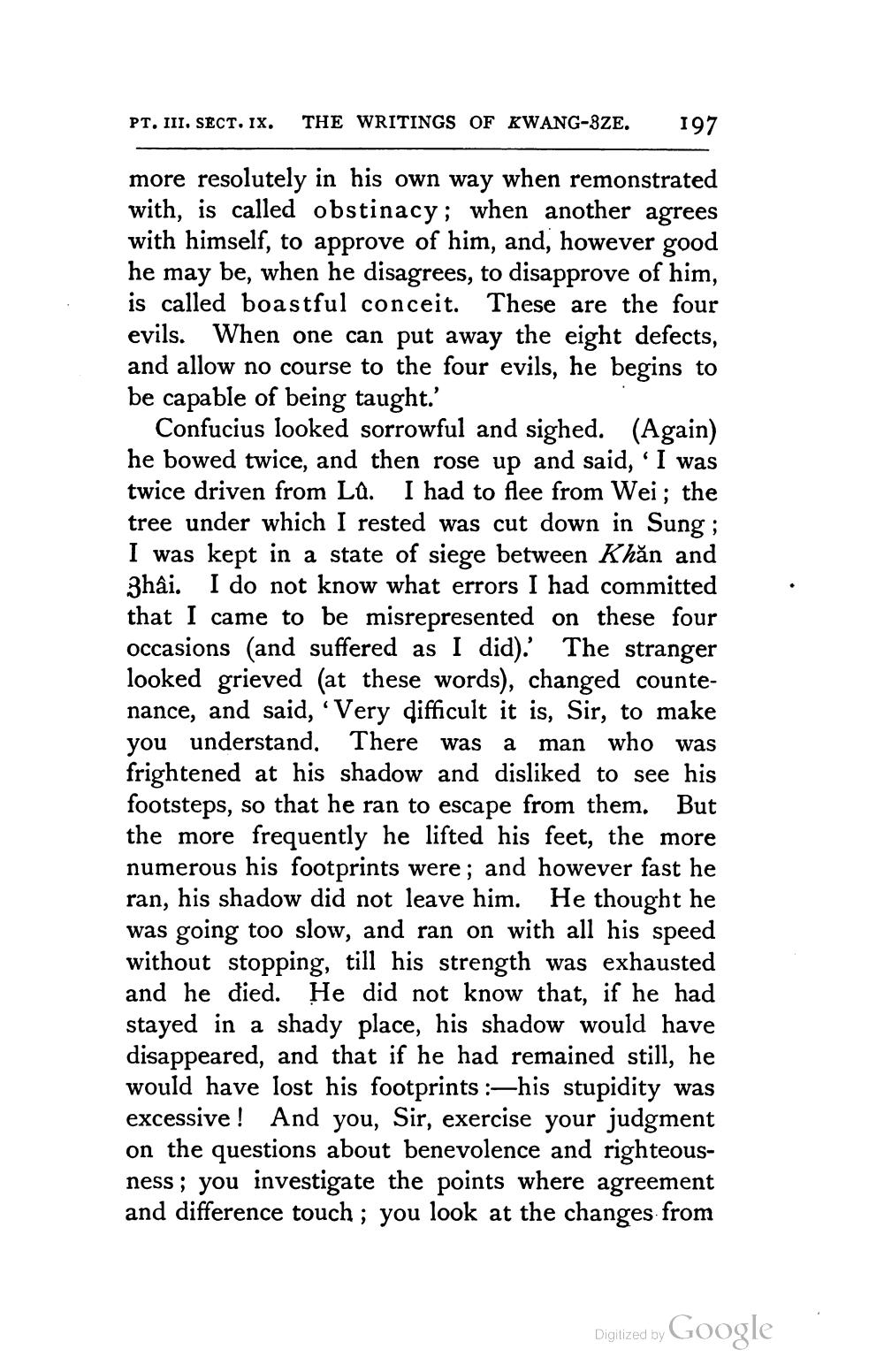________________
PT. III. SECT. IX. THE WRITINGS OF KWANG-8ZE.
197
more resolutely in his own way when remonstrated with, is called obstinacy; when another agrees with himself, to approve of him, and, however good he may be, when he disagrees, to disapprove of him, is called boastful conceit. These are the four evils. When one can put away the eight defects, and allow no course to the four evils, he begins to be capable of being taught.'
Confucius looked sorrowful and sighed. (Again) he bowed twice, and then rose up and said, 'I was twice driven from Lû. I had to flee from Wei; the tree under which I rested was cut down in Sung; I was kept in a state of siege between Khăn and 3hâi. I do not know what errors I had committed that I came to be misrepresented on these four occasions (and suffered as I did).' The stranger looked grieved (at these words), changed countenance, and said, 'Very difficult it is, Sir, to make you understand. There was a Iman who was frightened at his shadow and disliked to see his footsteps, so that he ran to escape from them. But the more frequently he lifted his feet, the more numerous his footprints were; and however fast he ran, his shadow did not leave him. He thought he was going too slow, and ran on with all his speed without stopping, till his strength was exhausted and he died. He did not know that, if he had stayed in a shady place, his shadow would have disappeared, and that if he had remained still, he would have lost his footprints:-his stupidity was excessive! And you, Sir, exercise your judgment on the questions about benevolence and righteousness; you investigate the points where agreement and difference touch; you look at the changes from
Digitized by Google




